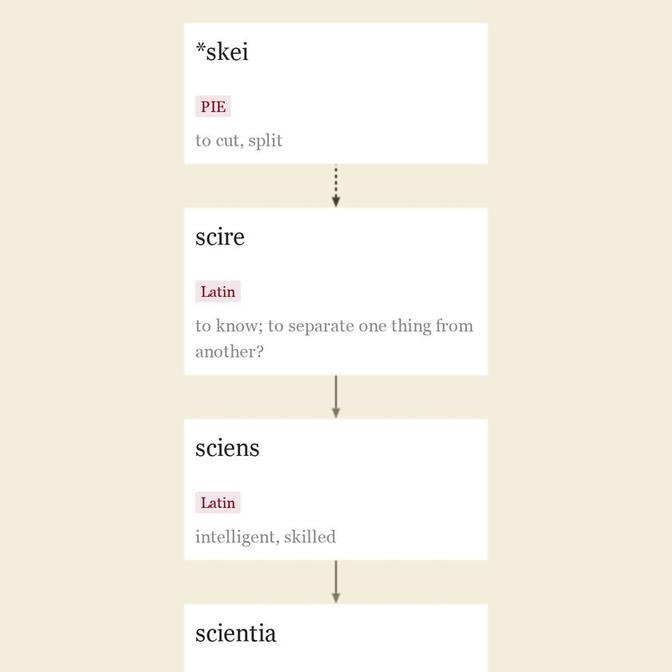| 词源 |
nice adj.late 13c., "foolish, ignorant, frivolous, senseless," from Old French nice (12c.) "careless, clumsy; weak; poor, needy; simple, stupid, silly, foolish," from Latin nescius "ignorant, unaware," literally "not-knowing," from ne- "not" (from PIE root *ne- "not") + stem of scire "to know" (see science). "The sense development has been extraordinary, even for an adj." [Weekley] — from "timid, faint-hearted" (pre-1300); to "fussy, fastidious" (late 14c.); to "dainty, delicate" (c. 1400); to "precise, careful" (1500s, preserved in such terms as a nice distinction and nice and early); to "agreeable, delightful" (1769); to "kind, thoughtful" (1830). In many examples from the 16th and 17th centuries it is difficult to say in what particular sense the writer intended it to be taken. [OED] By 1926, it was said to be "too great a favorite with the ladies, who have charmed out of it all its individuality and converted it into a mere diffuser of vague and mild agreeableness." [Fowler] "I am sure," cried Catherine, "I did not mean to say anything wrong; but it is a nice book, and why should I not call it so?" "Very true," said Henry, "and this is a very nice day, and we are taking a very nice walk; and you are two very nice young ladies. Oh! It is a very nice word indeed! It does for everything." [Jane Austen, "Northanger Abbey," 1803] For sense evolution, compare fond, innocent, lewd, also silly, simple. Nice Mediterranean seaport of France, ceded to France in 1860 by Sardinia; ancient Nicaea, from Greek nikaios "victorious," from nikē "victory" (see Nike). Nizzard "a resident of Nice" is from Nizza, the Italian form of the city name. updated on November 03, 2022 |

